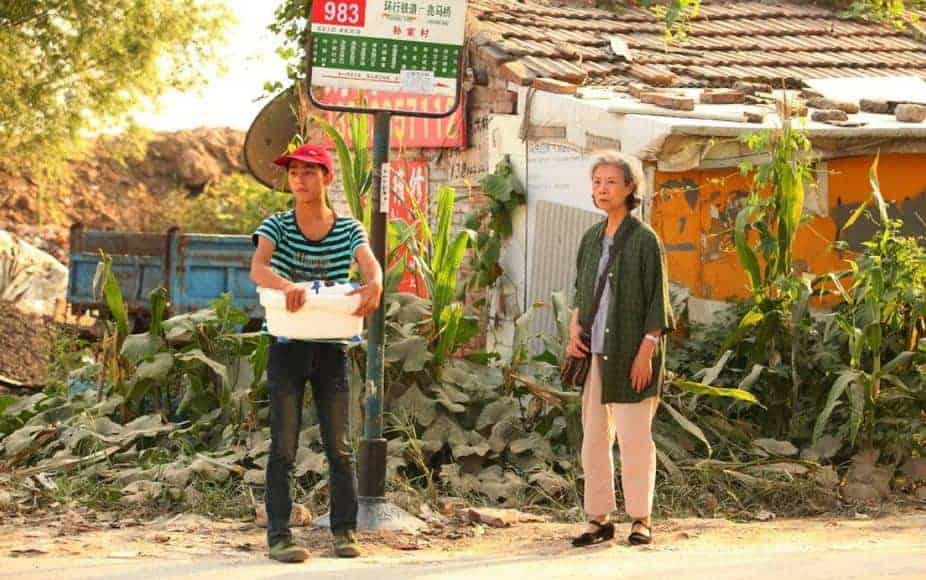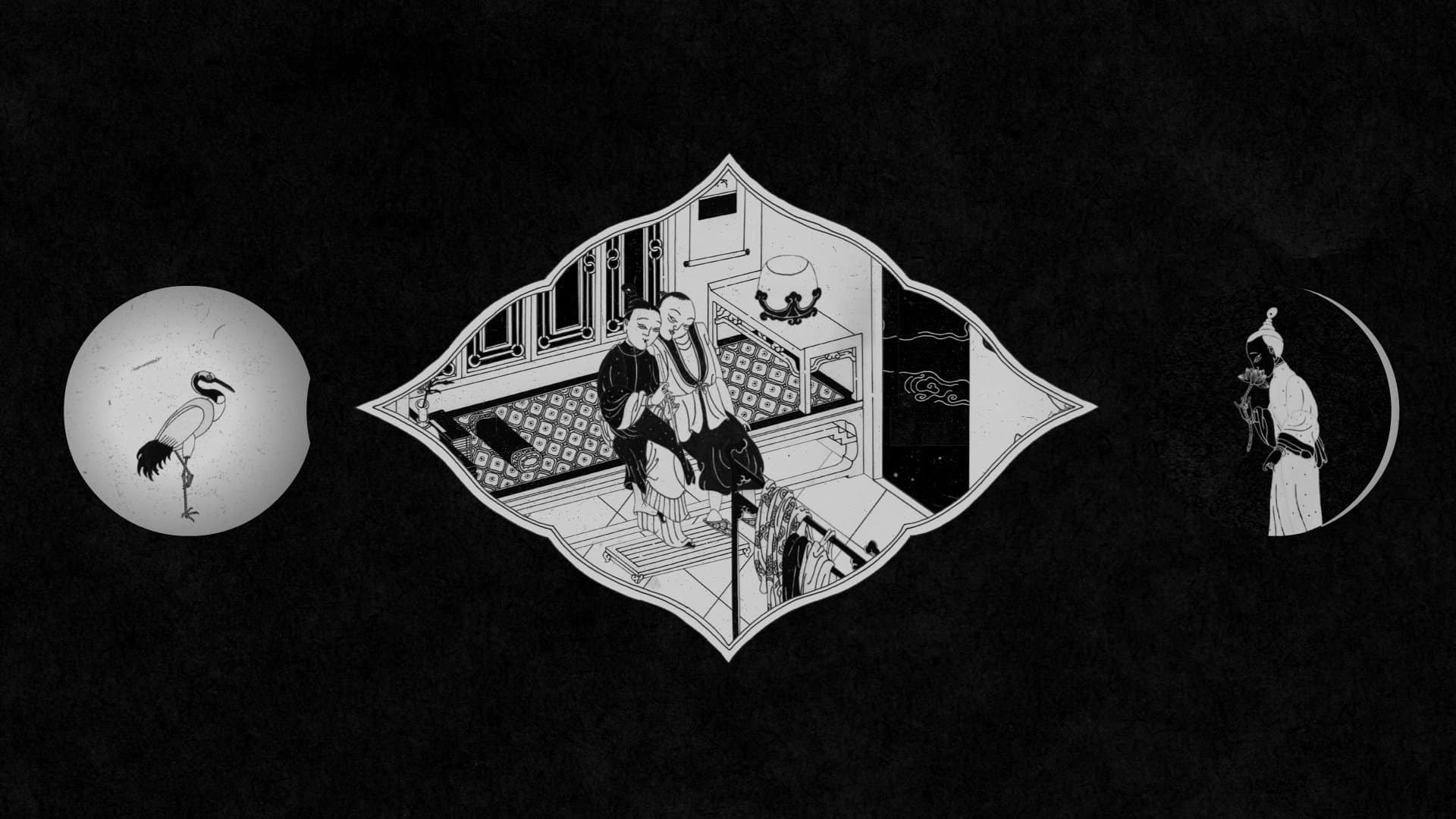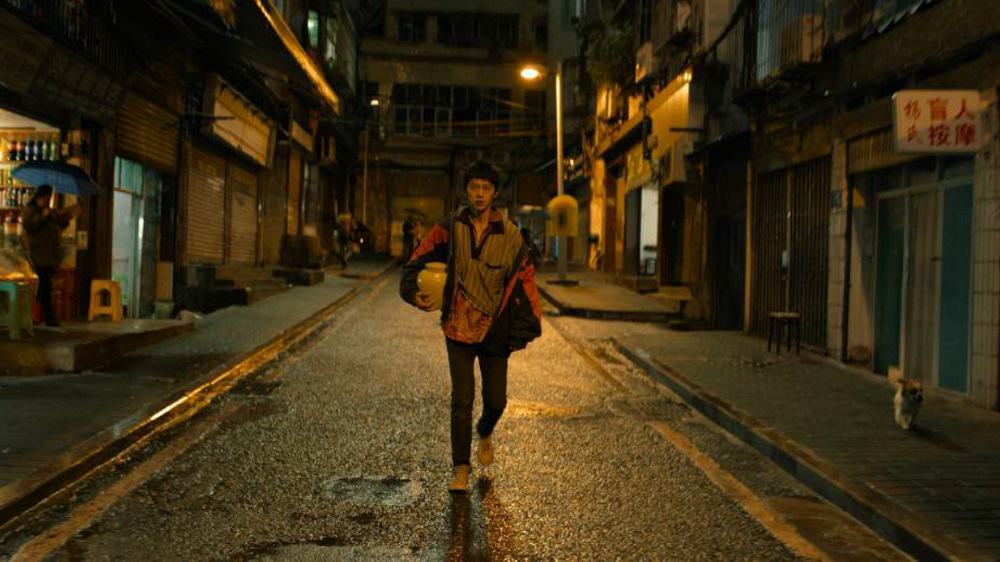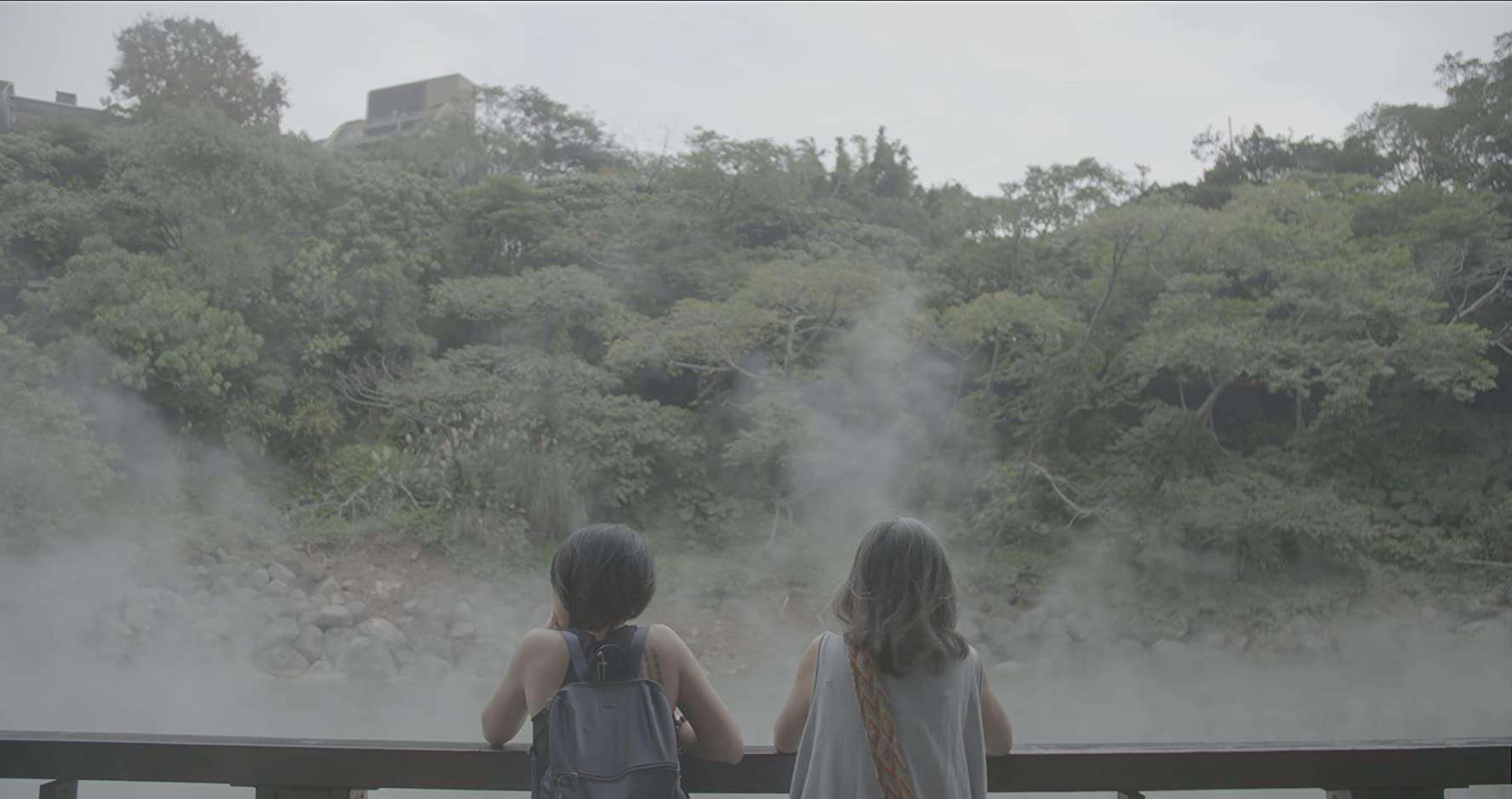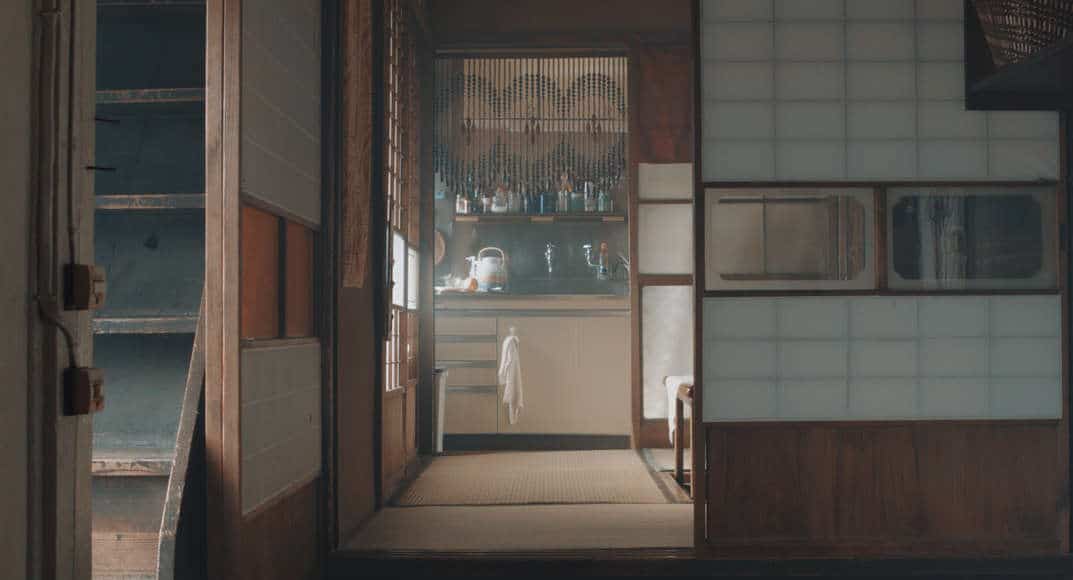Drawing a parallel between grim personal history and the dark secrets of a nation's past, Wang Xiaoshuai's Red Amnesia, the third part in the director's Cultural Revolution trilogy, is a ghost story in the figurative (and perhaps also literal) sense, granting solid presence to the mysterious inhabitants of anxious dreams and haunting memories.
What begins as the tale of a blameless, good-natured widow plagued with harassing phone calls slowly unfurls into a sombre meditation on guilt, denial and the lingering repercussions of long buried sins.
Red Amnesia is streaming on FilmDoo
The wordless introductory minutes of Red Amnesia set the film's quiet, pensive tone with its moody footage of dimly lit interiors mixed with ominous shots of empty streets and dilapidated buildings (though the location of these eerie exteriors will only become clear in the film's final stretch).
The near-silent opening is interrupted by the ringing of a phone for what will be the first of a series of calls to the elderly Deng (Lü Zhong) that consist of nothing but the sound of breathing on the other end. She immediately turns to the police and the older of her two sons, Jun, each of whom respond to her claims with condescension and scepticism.
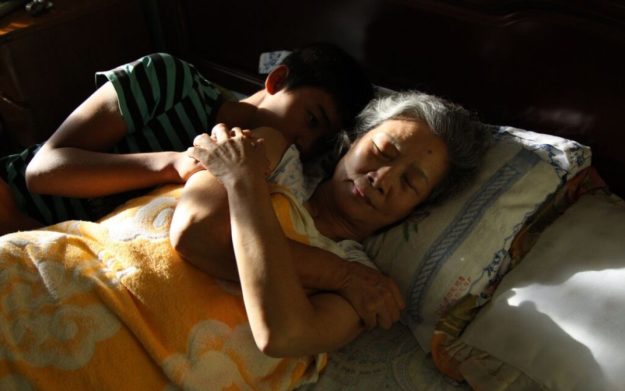
The social neglect and underestimation of the older generations is a fundamental theme woven into the fabric of the feature.
The social neglect and underestimation of the older generations is a fundamental theme woven into the fabric of the feature. We see this first via the scenes with Deng's family, who demonstrate little faith in the competency and judgement of the elderly (though to be fair, it eventually becomes clear that Deng is indeed not the most stable of heroines). Then the other shoe drops when we discover the bitter history that lurks behind Deng's innocent old lady façade.
Deng – like most of the characters caught in this ever-increasing tangle of past and present, reality and delusion, right and wrong – eludes the neat categories of ‘victim' and ‘perpetrator'. The same can be said of the youth of today, represented by a mysterious young stalker who holds a spectral, unnerving presence up until the final scenes that reveal him for the frightened, angry and confused boy he is.
The ambiguous, somewhat maternal relationship that develops between Deng and the strange teenager (a relationship that may or may not exist only in Deng's imagination) calls to mind the cross-generational bonds of Lee Chang-dong's Poetry and Bong Joon-ho's Mother, evoking a similar feeling of lonely moral ambivalence in response to destructive and uncommunicative youth.
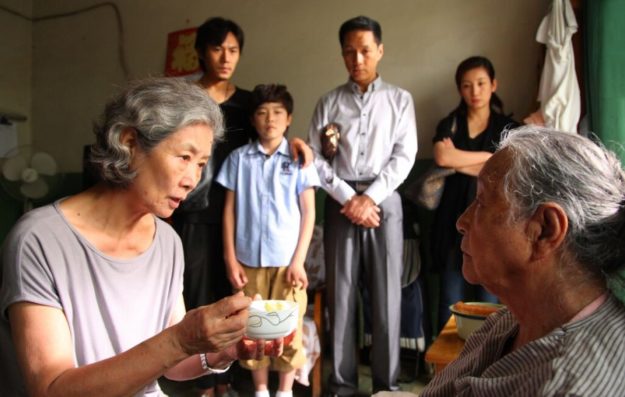
For a film that falls slightly short of the 2-hour mark, Red Amnesia's themes can feel a little underdeveloped and thinly stretched, with Wang too often falling back on an overly vague aura of gloom and solemnity where the film would be better off delving further into the meat of its core ideas.
Nonetheless, even in the film's least rewarding stretches, Zhong Lü's vulnerable yet composed performance ensures a base level of emotional investment right up until the film's crushing conclusion.
For the most part, this is a carefully paced and resonant drama that intrigues…
For the most part, this is a carefully paced and resonant drama that intrigues as much for its anxious and uncertain vision of the present as for its mournful depiction of a past that's heavy with regret.
With every upsetting revelation that Wang's despondent picture brings to the table, troubling new questions emerge that suggest a woman and a nation still hopelessly saddled with the burdens of history.


